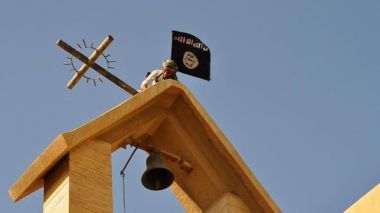Crowdsourcing and 3D printing used to recreate artifacts destroyed by ISIS

Volunteers and technicians hope to undo some of the historical and cultural theft by the Islamic State (IS) by recreating ancient artifacts using 3D printing.
Although not replaceable, modern technology allows some of these items to be replicated.
The militant group has levelled ancient cities and historical sites across the Middle East, and targeted museums, libraries, and other collections of priceless items. Earlier this month, the group released a video showing the destruction of artifacts in the Mosul Museum— the second largest museum in the country.
Last month, IS blew up the Mosul Public Library, which they broke the locks on in January. More than 10,000 books and 700 rare manuscripts were destroyed in the attack, carried out using improvised explosive devices. The library contained maps and books from the Ottoman Empire, collections of Iraqi newspapers from the 19th century, and other historical items.
Project Mosul is calling for people worldwide to help repair some of this damage by submitting photos from their trips to the cultural institutions.
"We need pictures of the artifacts found in the Mosul Museum," the project's website read. "These pictures allow us to digitally reconstruct the original artifacts, and can eventually aid in the restoration [of] those artifacts. The more pictures the better, and as many angles and perspectives, even better still!"
The project is part of the Initial Training Network for Digital Cultural Heritage, funded by the European Union. In addition to submitting photos, volunteers are asked to develop web platforms if they have coding skills, mask images using Photoshop, process artifacts using automated photogrammetry, or simply spread the word about Project Mosul.
"This project is a direct response to the senseless destruction of cultural heritage by extremists, not only ISIS, but to any group who uses heritage as leverage or political power," the coordinators said. "Instead, we want to bring heritage back to life through digital tools, giving the public access to any destroyed heritage, starting with the Mosul Museum."
More information about Project Mosul is available on their website.











